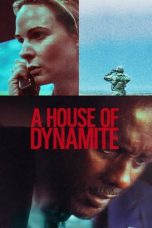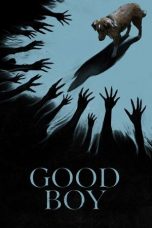Psycho (1998) Movie Review: A Controversial Remake of a Classic
In 1998, director Gus Van Sant took on the ambitious project of remaking Alfred Hitchcock’s iconic 1960 thriller, “Psycho.” This new version, starring Vince Vaughn, Anne Heche, Julianne Moore, and Viggo Mortensen, aimed to replicate the original film shot-for-shot. The result was a polarizing film that sparked considerable debate among critics and audiences alike.
Plot Summary
The plot of the 1998 “Psycho” closely follows the original. Marion Crane (Anne Heche), a secretary, embezzles $400,000 from her employer and goes on the run. She stops at the Bates Motel, where she meets the awkward but seemingly kind proprietor, Norman Bates (Vince Vaughn). After a fateful stay, Marion disappears, prompting her sister Lila (Julianne Moore) and her lover Sam Loomis (Viggo Mortensen) to investigate her whereabouts. They uncover disturbing secrets about Norman and his mother.
Cast and Performances
Vince Vaughn steps into the role of Norman Bates, originally made famous by Anthony Perkins. Vaughn’s portrayal is marked by an unsettling mix of charm and menace, but it lacks the subtlety and nuance that Perkins brought to the character. Anne Heche as Marion Crane delivers a solid performance, capturing the desperation and fear of her character.
Julianne Moore, as Lila Crane, brings a strong presence to the screen, portraying a determined and resourceful woman on a mission to find her sister. Viggo Mortensen, as Sam Loomis, provides a dependable performance, though his role remains largely in the shadow of the more central characters.
Visuals and Direction
One of the most controversial aspects of the 1998 “Psycho” is its commitment to being a nearly shot-for-shot remake of Hitchcock’s original. Van Sant’s approach involves replicating the camera angles, set designs, and even the dialogue of the 1960 film. This decision led to mixed reactions; some viewers appreciated the homage, while others found it unnecessary and lacking in originality.
The film’s color palette and updated setting provide a modern aesthetic, but the slavish adherence to the original’s structure often makes the new version feel like an experiment rather than a fresh take. The infamous shower scene, for example, is recreated with meticulous detail, but it fails to recapture the shock and innovation of Hitchcock’s original.
Themes and Style
The themes of “Psycho” remain intact in the 1998 version, exploring guilt, identity, and the facade of normalcy. However, Van Sant’s remake struggles to add any new insights or layers to the story. The stylistic choices, while faithful to the original, lack the inventive spirit that made Hitchcock’s film a landmark in cinema history.
Critical Reception
Upon its release, the 1998 “Psycho” received largely negative reviews. Critics questioned the necessity of a shot-for-shot remake, with many arguing that it failed to justify its existence beyond being a cinematic curiosity. The performances, particularly Vaughn’s take on Norman Bates, were scrutinized for not living up to the original.
Despite the criticism, the film has been the subject of academic discussions and analyses, examining the nature of remakes and the challenge of reinterpreting classic works.
Streaming Availability
For viewers in the United States, the 1998 “Psycho” is available for streaming on several platforms:
- Amazon Prime Video: Available for rent or purchase, offering both SD and HD options.
- Apple TV: Users can rent or buy the film through the Apple TV app.
- Google Play Movies & TV: The movie can be rented or purchased and streamed on various devices.
- Vudu: Offers rental and purchase options, with the ability to watch in HDX.
Conclusion
The 1998 “Psycho” stands as one of the most contentious remakes in film history. While it offers a meticulous homage to Hitchcock’s classic, it ultimately falls short of capturing the innovation and psychological depth of the original. For those curious about this unique cinematic experiment, it provides an intriguing, if flawed, viewing experience.
The film’s availability on various streaming platforms ensures that new audiences can explore this controversial remake. Whether viewed as a tribute to a masterpiece or a misstep in filmmaking, “Psycho” (1998) continues to provoke discussion and debate, highlighting the enduring impact of Hitchcock’s original vision.
In summary, “Psycho” (1998) is a film that remains a fascinating case study in the realm of remakes. Its dedication to replicating the original serves as both its defining feature and its greatest limitation, making it a noteworthy, if ultimately divisive, entry in the annals of cinema.
















